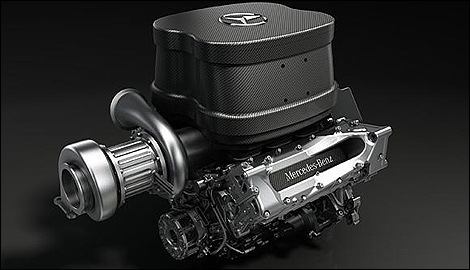Jul
16th
Stay connected Subscribe to our RSS feed
From GMM
Ross Brawn is expecting the 2014 season to be characterised by failures.
After years of engine regulation stability, the sport is undergoing an enormous technical shakeup at present ahead of next year's radical switch to turbo V6 power.
"We will go back to a time such as 20 years ago," Mercedes team boss Brawn is quoted by Auto Motor und Sport.
"The technology is so complex that I expect a lot of failures. So there will be a new element of surprise," he predicted.
Brawn said the challenge will be intensified yet further by the tightening of F1's long-life engine rules, with each driver to be allocated just 5 units next year, rather than 8 at present.
"And the failures will be not just the engines, but the individual components," he said.
For instance, if turbochargers or batteries fail next year, replacing the component will attract the same penalty of a ten-place grid demotion, once the drivers' engine allocation has run out.
Ross Brawn is expecting the 2014 season to be characterised by failures.
After years of engine regulation stability, the sport is undergoing an enormous technical shakeup at present ahead of next year's radical switch to turbo V6 power.
"We will go back to a time such as 20 years ago," Mercedes team boss Brawn is quoted by Auto Motor und Sport.
"The technology is so complex that I expect a lot of failures. So there will be a new element of surprise," he predicted.
 |
| Photo: Mercedes-Benz |
Brawn said the challenge will be intensified yet further by the tightening of F1's long-life engine rules, with each driver to be allocated just 5 units next year, rather than 8 at present.
"And the failures will be not just the engines, but the individual components," he said.
For instance, if turbochargers or batteries fail next year, replacing the component will attract the same penalty of a ten-place grid demotion, once the drivers' engine allocation has run out.
 The latest auto news, reviews, prices, product and vehicle releases.
The latest auto news, reviews, prices, product and vehicle releases.